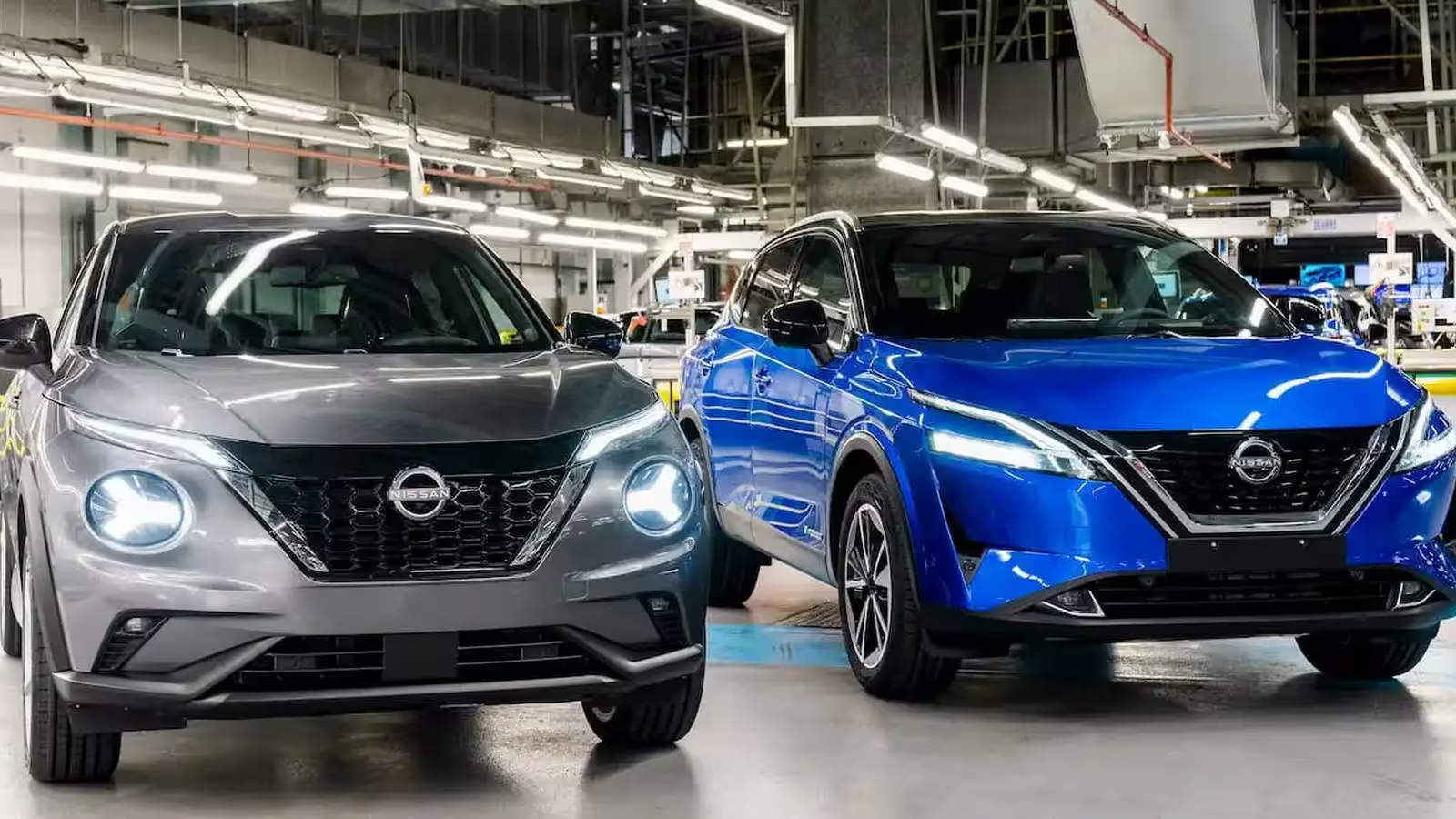3 Minutes
Nissan's Evolving Lineup: Gas and Electric Juke to Coexist?
Nissan is making major strides towards electrification, but fans of traditional powertrains may have reason to celebrate. While the Japanese automaker recently announced a massive investment of £3 billion ($3.9 billion) to modernize its Sunderland, UK manufacturing plant, there's speculation that Nissan will continue offering the beloved gas-powered Juke SUV even as an all-electric version hits the market.
Future of Nissan’s Iconic Models: LEAF, Qashqai, and Juke
As part of an ambitious brand overhaul, Nissan will produce its next-generation LEAF, Qashqai, and Juke models at the Sunderland facility. The all-new electric Nissan LEAF is set to launch later this year, featuring a more crossover-inspired silhouette and substantial upgrades, including extended range and faster charging capabilities. The electric Juke (Juke EV) is expected to debut in 2026, followed by the Qashqai EV in 2027.
Market Strategy: Hybrid and Gasoline Juke May Remain
According to industry insights, the Juke remains Nissan’s second-best-selling model in Europe, trailing only the Qashqai. This popularity, combined with varied European electric vehicle adoption rates and evolving government regulations, is prompting Nissan to consider maintaining the gas-powered Juke in its lineup for the foreseeable future.
Nissan's recent launch of the next-gen Qashqai showcased the brand’s innovative e-POWER hybrid system, delivering leading fuel efficiency of 4.5 liters per 100 kilometers and a remarkable range of up to 1,200 km (WLTP). This hybrid setup relies on an electric motor for propulsion while the gasoline engine acts as a generator—an approach that could be mirrored for the Juke to keep it competitive and compliant amid shifting market demands.
Performance and Vehicle Specifications
The upcoming Juke EV is anticipated to build on Nissan’s reputation for practical yet stylish compact SUVs, but details on its electric powertrain are still under wraps. For hybrid or gas-powered variants, expect agile city handling, advanced infotainment, and the distinctive design language that has made the Juke a standout in its class.
Comparing Powertrain Options
Nissan’s dual approach—offering both conventional and electrified Juke models—provides customers with flexibility, whether they prioritize zero-emissions driving or seek proven gasoline efficiency. This strategy is similar to what Nissan has done with the Qashqai, meeting the needs of a broad customer base during the ongoing transition to electric vehicles.
Uncertain Future: Delays and Adjustments
Recent reports indicate production cuts for the 2026 Nissan LEAF, and delays in U.S. EV launches from other plants, fueling speculation about broader challenges in Nissan’s electrification roadmap. Nonetheless, the company forges ahead, aiming to strike the right balance between tradition and innovation.
Conclusion: Should Nissan Keep the Gas Juke?
As the automotive industry edges toward an all-electric future, Nissan’s potential plan to retain the gas-powered Juke as it debuts the Juke EV is a calculated move to satisfy diverse market needs and maintain its foothold in the competitive compact SUV segment. What do you think—should Nissan continue offering the gasoline Juke, or fully commit to electric power? Share your opinion below.
Source: electrek



Comments